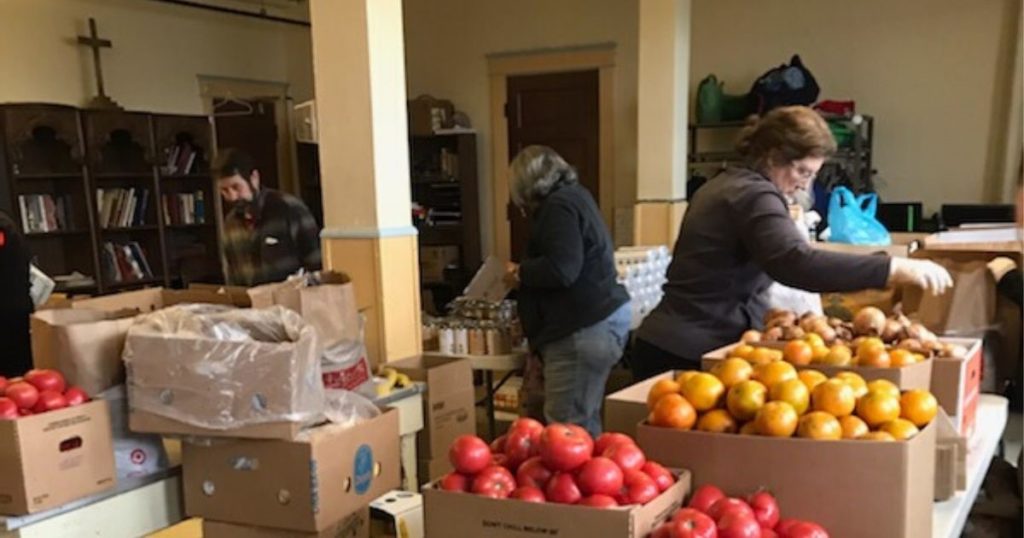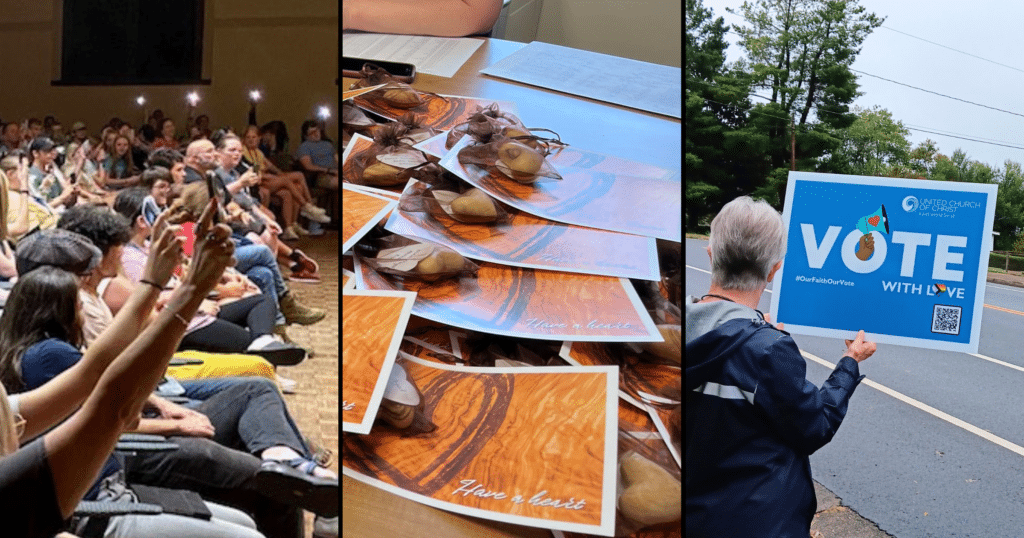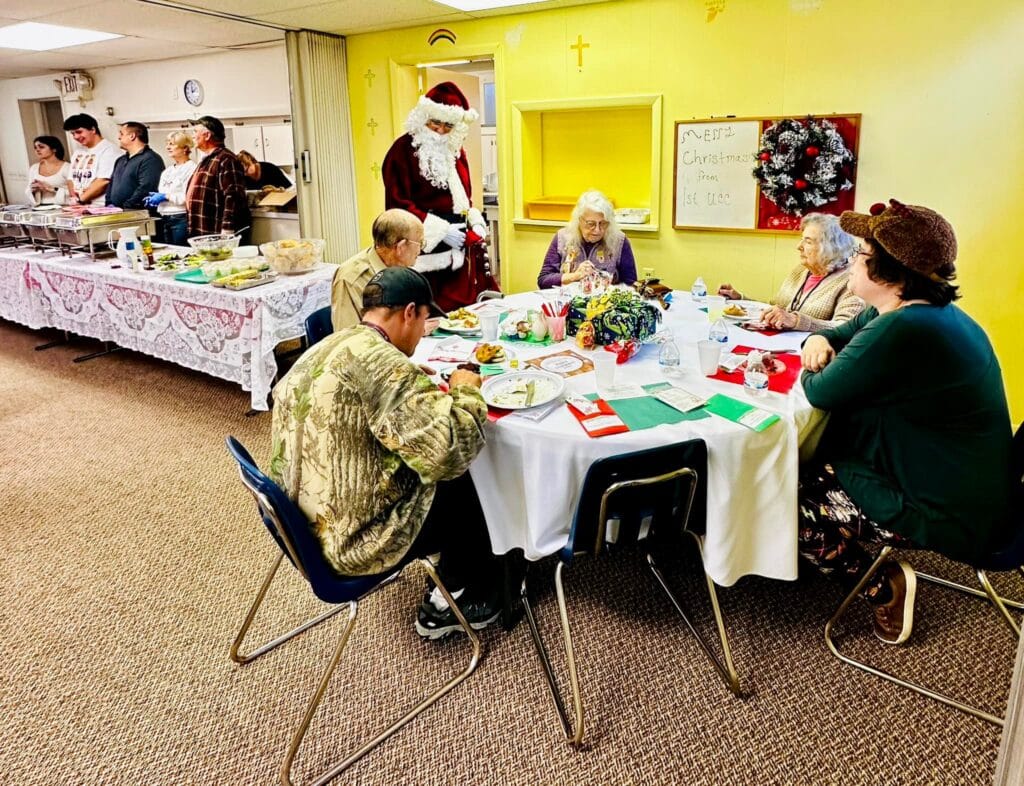Two Cleveland churches still open over night for what state calls ‘essential services’
Two Cleveland congregations of the United Church of Christ are among those that have suspended in-person worship but are still providing overnight shelter, food and a human touch for their homeless neighbors – services now declared “essential” by the state of Ohio for this moment in the COVID-19 pandemic.
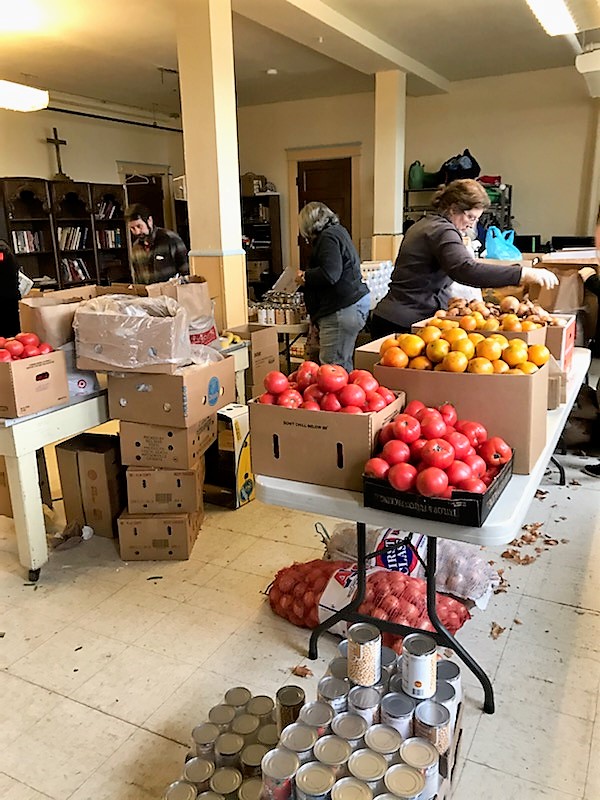 “It has been kind of magical,” said the Rev. Nozomi Ikuta, describing relationships that have formed among the same 15 guests who now eat and sleep at Denison Avenue UCC every night – and where others can still get a bag of groceries weekly.
“It has been kind of magical,” said the Rev. Nozomi Ikuta, describing relationships that have formed among the same 15 guests who now eat and sleep at Denison Avenue UCC every night – and where others can still get a bag of groceries weekly.
“We’re almost at capacity every night,” said the Rev. Doug Horner of the gym at St. Paul’s Community Church, UCC. It remains open for overflow from the city’s largest men’s shelter. St. Paul’s is also staying open during the day – though fewer hours than usual – so homeless people can collect their mail, use the rest room, have a cup of coffee or get help with applying for identification documents.
As the pandemic has widened, both pastors have struggled to decide what services to continue, as have many of their peers around the country who lead ministries to low-income people. Each got some clarity March 22 from a statewide stay-at-home order issued by Dr. Amy Acton, director of the Ohio Department of Health, and announced by Gov. Mike DeWine. It took effect Monday night, March 23, but permitted certain operations to continue, including “businesses and religious and secular nonprofit organizations … when providing food, shelter, and social services, and other necessities of life for economically disadvantaged or otherwise needy individuals … .”
The state order also “strongly urged” people experiencing homelessness to find shelter, and “governmental and other entities … to make such shelter available.” Both Cleveland pastors say they are welcoming people who otherwise would be sleeping outdoors in temperatures still near freezing some nights.
‘Community of people that God has given us’
The Denison Avenue congregation had already been a well-publicized center of controversy this winter. City officials slapped a Christmas Eve “cease use” order on its door, saying the building wasn’t up to code for overnight hospitality. Much has changed since then, including a rally of public support, an extension of time granted by the city, and a decision by a local partner, The Metanoia Project, to end its emergency shelter at Denison Avenue UCC, leaving the church on its own since March 15.
Rather than close its doors, the church immediately opened a new “Beloved Community Program” with room for 15, down from as many as 60 when Metanoia was providing staffing and support. A group of regular winter guests agreed to shelter together to limit the possible spread of the coronavirus. A team from Cleveland’s Catholic Worker Movement community also stepped forward to take overnight shifts at their storefront, a couple miles from the church, when Metanoia also ended its time there.
“We’ve tried to keep the faith with the little community of people that God has given us,” Ikuta said. “The more time they’re here, the less time they’re out multiplying their contacts.”
Denison Avenue currently has enough paid and volunteer staff to enable guests to stay about 20 hours per day, although the church is seeking funding to extend that to 24 hours a day. Meantime, with Ikuta’s encouragement, the guests have taken charge of forming a community and setting rules. Two recent votes: to allow people until 8 p.m. to go to the corner store for essential items before the door is closed for good, and to move lights-out from 11 p.m. to 10. There’s a value in that process, guests say.
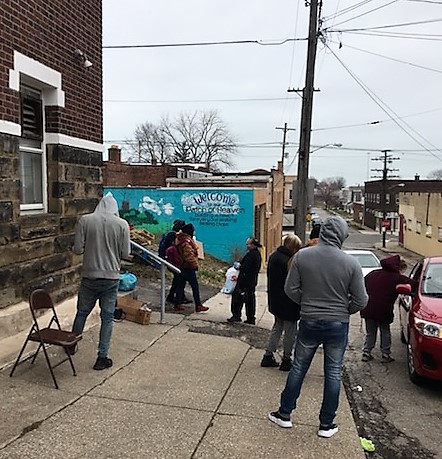 “Being democratic is beautiful – like, truly democratic,” said Aaron Shabazz, who’s been staying there for three months. “It’s like brainstorming in a classroom without all the static or like the professor is going to tell you what’s wrong.” He added: “I visualize myself as a visionary. And without trying to take anything away from the prophets, I feel like I got my name for a reason, and the people around me here allow me to develop my voice.”
“Being democratic is beautiful – like, truly democratic,” said Aaron Shabazz, who’s been staying there for three months. “It’s like brainstorming in a classroom without all the static or like the professor is going to tell you what’s wrong.” He added: “I visualize myself as a visionary. And without trying to take anything away from the prophets, I feel like I got my name for a reason, and the people around me here allow me to develop my voice.”
‘None of us want to get sick’
In a pandemic, for guests and staff alike, “it has been tricky,” Ikuta said. “None of us want to get sick ourselves, many of us come into contact with elders, all of us care about disease prevention, and the ground has shifted beneath our feet. We care about sanitizing, hand washing, limiting contact and maintaining social distance.” The Beloved Community practices all of those, she said.
“Every time we enter the door, we wash our hands,” said another guest, Justin Walker, noting that everyone takes part in wipe-downs, at least daily, of all the spaces they use. “We basically clean everything.”
Ikuta said it would cost about $10,000 a month to continue the program as it is now, or $15,000 with paid staff available round the clock. For now, the church has funding only until the end of March. In view of COVID-19, she wondered if it should go on longer. “The math works out that it would be cheaper to find people apartments,” Ikuta said. But given their varied conditions and backgrounds, some guests are not ready to handle apartments on their own. Some would have difficulty finding a landlord who would take them.
The church program offers not only cots, meals and companions, but guidance and life help as well. “It’s progressive,” Shabazz said. “People are moving forward.” On Sunday, March 22, in lieu of worship, Ikuta joined them for a “mending broken hearts” spiritual circle. Some stayed that day to do laundry and shoot baskets in the church gym.
“If you look at it as room, board and tuition for an experience that may help them stabilize, not just physically but emotionally – an experience that may help them achieve something new every day – then I think it’s not that bad,” she said.
“I ain’t never seen no place like this that provides so much help and care,” Walker said. “Finding something like this would be finding a needle in a haystack. There is no clone of this place.”
For now, the church is accepting financial as well as in-kind donations, such as drop-offs of prepared meals that are ready to reheat.
Keeping key daytime services going
St. Paul’s, with roots in the Inner City Protestant Parish movement of the 1950s, has always been a community center as well as a worshiping congregation. It hosts daytime drop-in programs, a thrift shop, free meals, after-school youth activities, occasional evening “coffee house” performances and more.
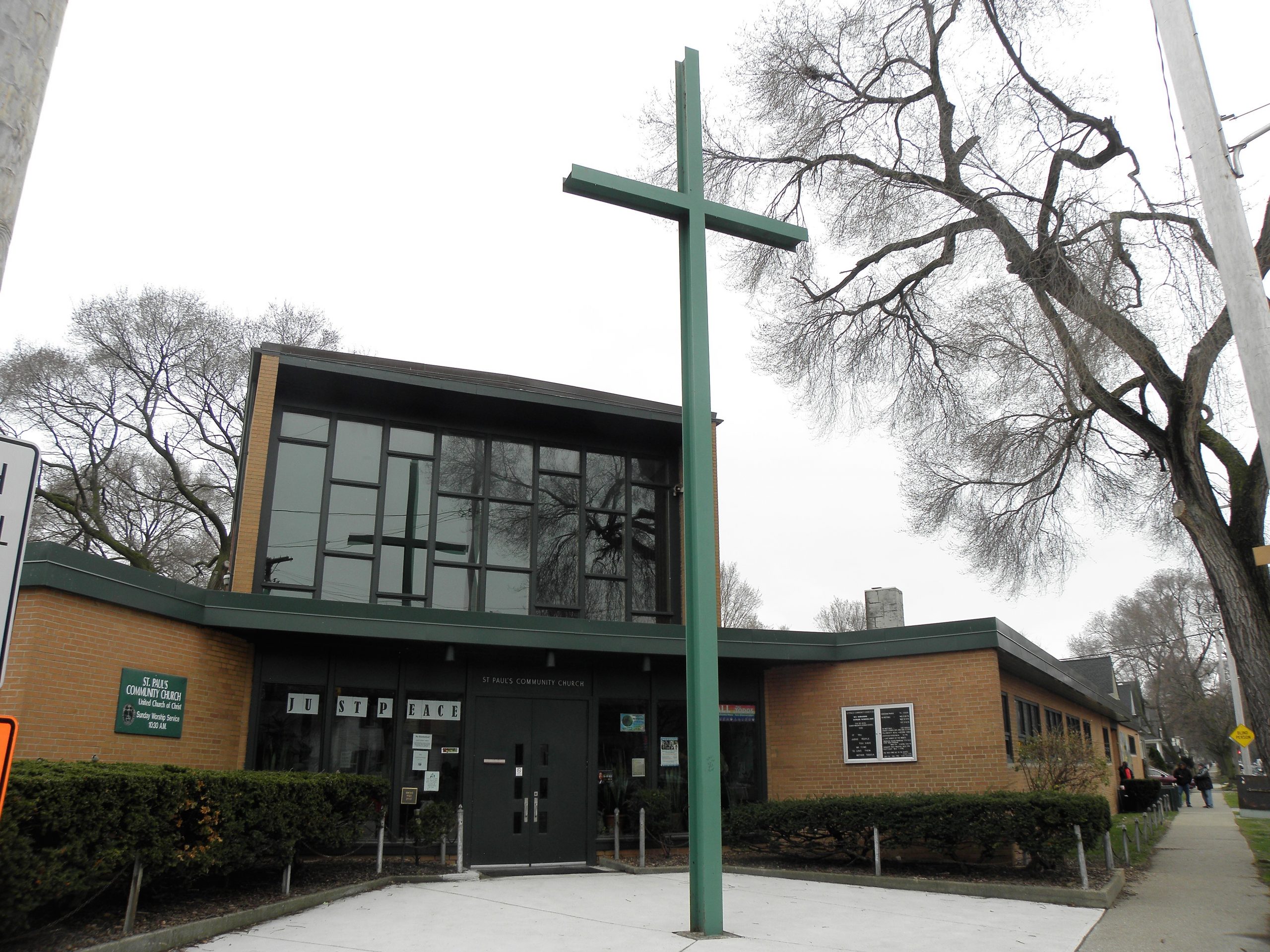 While suspending many activities during the pandemic, Horner said, the church felt key services to homeless people should continue:
While suspending many activities during the pandemic, Horner said, the church felt key services to homeless people should continue:
- People who use the church as their postal address can still collect their mail, one person at a time on a limited schedule, from the 70 mailboxes St. Paul’s provides.
- They can use a phone. It is cleaned after each use.
- Through St. Paul’s work with Cleveland’s ID Crisis Collaborative, they can still get help in obtaining birth and marriage certificates, residency papers, proof of Social Security numbers, state identification cards and renewal driver’s licenses. Documents like those are essential for, among other things, applying for housing.
And, nightly, vanloads arrive from Cleveland’s “2100 Lakeside” men’s shelter, operated by Lutheran Metropolitan Ministry. Guests bed down in the gym on cots set up with COVID-19-approved spacing. The agency provides staffing. Most of the year, the shelter overflow to St. Paul’s is 12 to 15 men. Right now, all 33 available cots, or nearly all, are taken most nights, Horner said. With Metanoia and some other shelters closed for the season or because of the pandemic, there are simply fewer places to go, he said.
Horner said he didn’t expect the load to lighten soon, “Especially with this weather. If it’s raining in these temperatures, people need to get in.” From his home a few blocks from the church, he can see across a highway to where someone lives in a tent. “He’ll probably be all right,” Horner said, “but most people can’t live like that forever.”
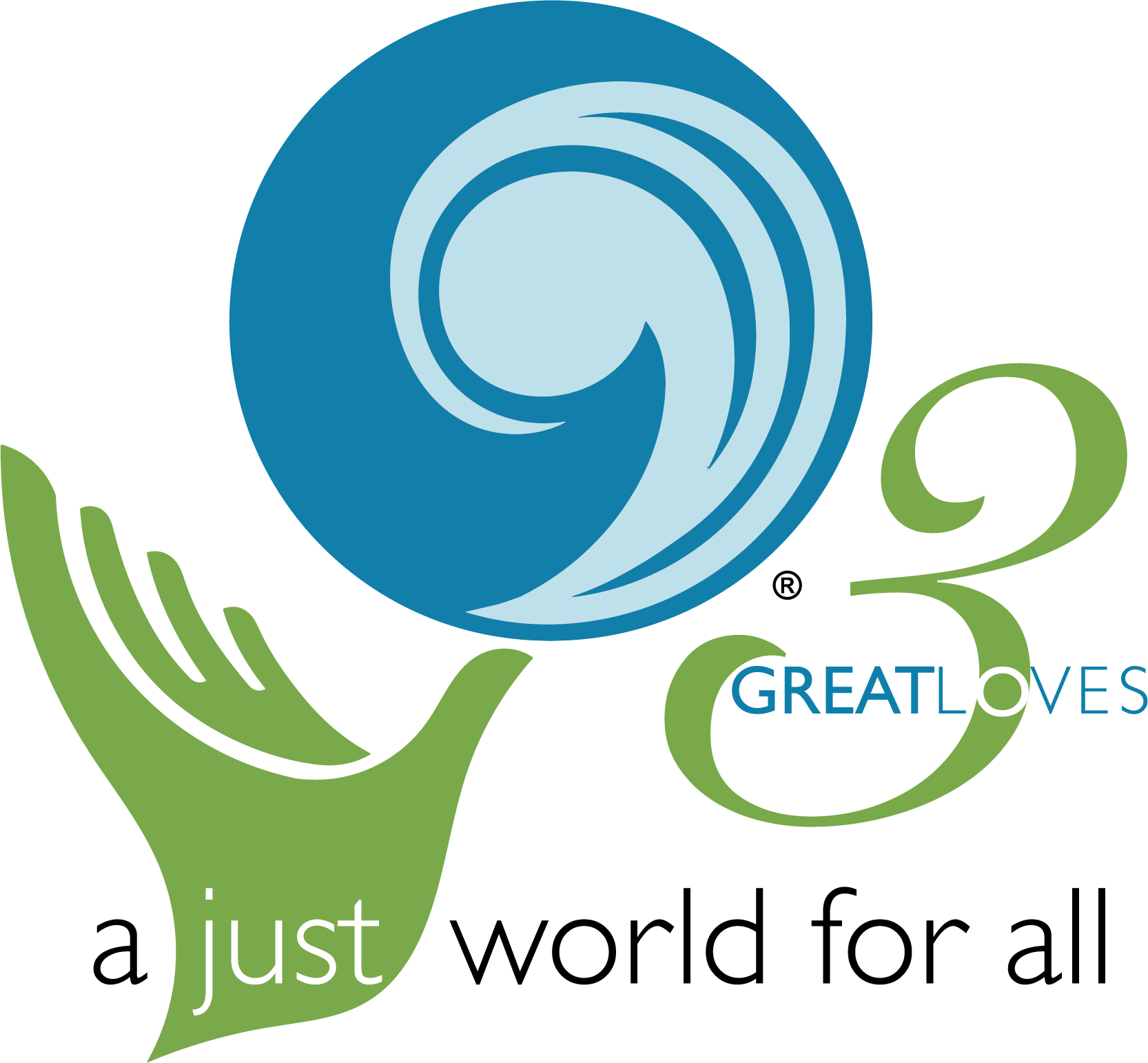 3 Great Loves is a denomination-wide mission initiative telling the stories of how we live out God’s love through the lens of 3 Great Loves: Love of Neighbor, Love of Children, and Love of Creation. To share the stories of how we, as a united church, live out God’s love in missional, measurable, and meaningful ways, please visit 3greatloves.org.
3 Great Loves is a denomination-wide mission initiative telling the stories of how we live out God’s love through the lens of 3 Great Loves: Love of Neighbor, Love of Children, and Love of Creation. To share the stories of how we, as a united church, live out God’s love in missional, measurable, and meaningful ways, please visit 3greatloves.org.[NOTE: This article was updated on March 30, 2020, to include clarified monthly costs of the Denison Avenue UCC Beloved Community program, as provided by Ikuta.]
Related News
Year in Review: Top news highlights of 2024
The United Church of Christ News team has spent each week of 2024 delivering stories that...
Read MoreNo more lonely little Christmases: Chasing away the blues now and into the New Year
With the loneliness epidemic in the U.S. continuing to affect every one in five people, many...
Read MoreUCC Annual Report video brings to life impactful ministries
Leaders of the United Church of Christ are thrilled to share the newly released 2024 Annual...
Read More